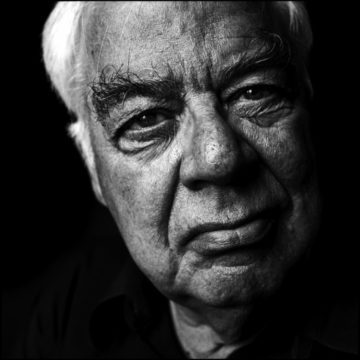George Scialabba in Commonweal:
 Richard Rorty (1931–2007) was the philosopher’s anti-philosopher. His professional credentials were impeccable: an influential anthology (The Linguistic Turn, 1967); a game-changing book (Philosophy and the Mirror of Nature, 1979); another, only slightly less original book (Consequences of Pragmatism, 1982); a best-selling (for a philosopher) collection of literary/philosophical/political lectures and essays (Contingency, Irony, and Solidarity, 1989); four volumes of Collected Papers from the venerable Cambridge University Press; president of the Eastern Division of the American Philosophical Association (1979). He seemed to be speaking at every humanities conference in the 1980s and 1990s, about postmodernism, critical theory, deconstruction, and the past, present, and future (if any) of philosophy.
Richard Rorty (1931–2007) was the philosopher’s anti-philosopher. His professional credentials were impeccable: an influential anthology (The Linguistic Turn, 1967); a game-changing book (Philosophy and the Mirror of Nature, 1979); another, only slightly less original book (Consequences of Pragmatism, 1982); a best-selling (for a philosopher) collection of literary/philosophical/political lectures and essays (Contingency, Irony, and Solidarity, 1989); four volumes of Collected Papers from the venerable Cambridge University Press; president of the Eastern Division of the American Philosophical Association (1979). He seemed to be speaking at every humanities conference in the 1980s and 1990s, about postmodernism, critical theory, deconstruction, and the past, present, and future (if any) of philosophy.
All the same, it began to be whispered among his colleagues that in mid-career Rorty had become disillusioned with being a philosopher and turned into something else: a culture critic, an untethered public intellectual, a French fellow traveler. And the chief whisperer, it turned out, was Rorty himself. After leaving Princeton’s philosophy department in 1981, he never held another appointment as a philosopher—by choice. He thought philosophy’s days were numbered and spent the second half of his career (and much of the first) explaining why.
More here.
